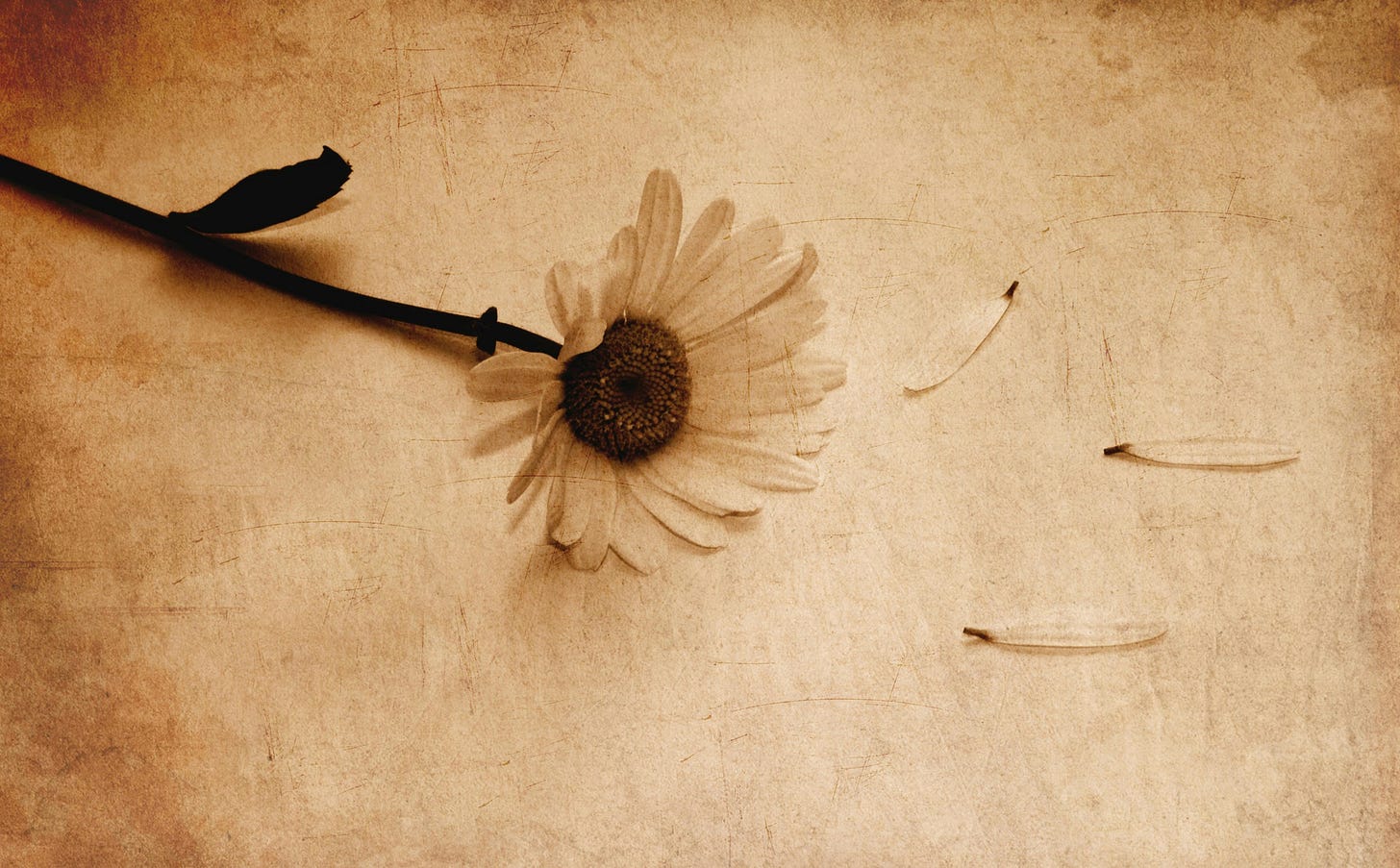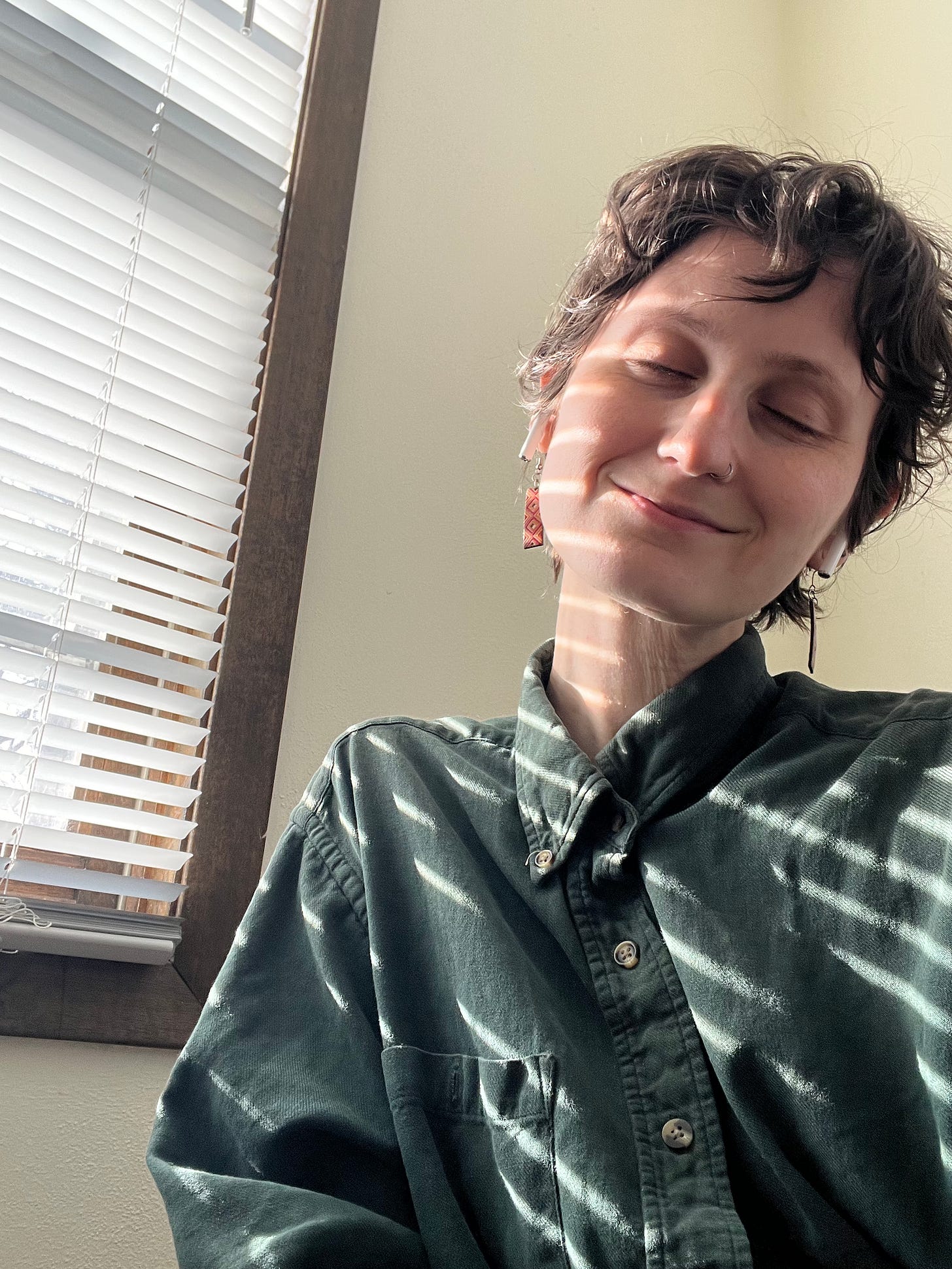Enjoy some moody music for an immersive experience :)
I’ve been thinking about the utility of hope — how something meant to be positive can feel so damn painful.
movie spoiler incoming
I began exploring my thoughts on hope recently after I saw Sing, Sing, a movie based on the true story of a performing arts program at a maximum security correctional facility. At the beginning of the film, the main character, Divine G, is full of hope about humanity, personal growth, and his clemency hearings. However, G soon finds out the cost of his unchallenged hope — heartbreak, despair, loss of identity — when his clemency appeal is denied despite new evidence of his innocence.
By the film’s end, it’s hinted that G finds his way back to hope. We see him outside the prison walls years later, implying that he kept fighting for his release, even against unimaginable obstacles. The film’s message is poignant: we need hope, even in the most hopeless circumstances.
Still, I felt somewhat uncomfortable with this message, and spent weeks contemplating the idea of hope.
does hope give or take?
In her poem “Hope” is the thing with feathers, Emily Dickinson describes hope as something that “never stops,” it perseveres through storms and chilly lands (i.e., hard times) and continues giving without asking for anything in return.
That’s not my experience of hope.
To me, hope feels persistently demanding. It demands my emotional energy, it demands my mental space, and it forces me to confront its more painful counterparts — disappointment and despair — when the object of my hope proves unattainable.
Like when the hope for the effectiveness of another medication dies, or when another month or year passes without answers for debilitating nausea, or when promising research into chronic illness is funded and then defunded.
I’m often left wondering what the purpose of hope is at all, so much so that I notice myself boycotting hope when it dares to surface in my consciousness.
okay, scratch what you just read
But sometimes I want to let hope wash over me, bake me like a chocolate chip cookie, twirl me around on the dance floor, and caress my skin until I fall asleep. Sometimes I want hope to hit me like the sunshine that peeps through my bedroom window every evening about 45 minutes before sunset, nourishing me with little specks of joy and hopefully the ever-elusive Vitamin D. Sometimes hope feels gentle, and subtle, and nourishing; sometimes hope feels joyful.
How can the same psychological construct feel both so good, but also so bad? This so good, so bad adage is typically reserved for addictive behaviors. Which makes me wonder…
Is hope an addiction?
An addiction is something we return to again and again, compulsively, without control, even when the negatives begin to outweigh the positives. An addiction offers short-term gratification, regardless of long-term consequences.
These descriptions mirror my experience with hope. Hope draws me in under the guise of positivity, but eventually, I engage with it mindlessly, turning to it compulsively when addressing the root cause of the pain is too emotionally painful.
Maybe hope is an addiction to avoiding the pain of the present moment by engaging in fantasy. Maybe hope is an addiction to the unspoken social contract that tells us we must to stay positive and optimistic during times of hardship otherwise face the wrath of other “well-meaning” people. On the other end, maybe hope is an addiction to the secrecy of a desire we’d only admit to our closest loved ones in a whisper, because speaking it into the universe feels too vulnerable, intimate, scary.
Who knows, really? But what I do know is that if hope leaves you more emotionally wounded than actually feeling the pain, something is not quite right.
hope & pain
Research suggests that the emotional complexity, and compulsion, around hope that I’m describing is not unique to me, but common for those with chronic pain and illness. Eaves et al.’s paper, “Ways of Hoping: Navigating the paradox of hope and despair in chronic pain” captures my hope conundrum well:
“Hope is fundamental to human existence. It is paradoxical in its duality, however, as its very existence implies the possibility of despair... In order to maintain hope when faced with a situation that appears hopeless, individuals must navigate multiple contradictions between reality and possibility.”
And later in the paper:
“Individuals living with chronic pain work to maintain a “safe” space between the vulnerability of overly-inflated hopes and the vulnerability of losing hope.”
Those of us living with chronic illness, often find ourselves trying to strike a careful balance—not letting hope swell into something unsustainable, but also not giving it up entirely. There is a vulnerability to both hoping “too much” and to losing hope. I think one reason hope feels so difficult is that despair as a result of life circumstances can feel safer and more acceptable than despair from fallen hope.
Unrequited hope can make us feel pathetic and embarrassed and all the other messy human emotions we love to escape.
But we don’t give up on love just because we’ve been heartbroken. We don’t stop applying for jobs just because we’ve been rejected. Unrequited hope — and the pain that follows — doesn’t mean hope serves no purpose.
my conclusion: hope is self-compassion
I’ve written about self-compassion and its utility for those of us with chronic health conditions before, and through the twists and turns of this reflection on hope, I’ve come to see hope as a form of self-compassion.
Maybe hope’s purpose is to maintain positivity in the present in order to create the foundation for more positivity in the future. In this way, hope becomes an investment in our future selves by preventing our present selves from drowning in sorrow. And that is a worthy pursuit.
I still believe hope can be an addiction, but renouncing hope isn’t the answer either. The balance likely lives somewhere in the middle, where hope isn’t a compulsive fantasy, but a grounded act of self-compassion.
I will likely continue to grapple with the idea of hope in relation to my experience of illness and the hope for symptom improvement. But maybe, like most objects of addiction, there are healthy ways to imbibe hope that I haven’t yet figured out. Perhaps there’s a way to consume hope in moderation.
I hope I’ll figure out that balance one day, and that hope won’t feel so painful.
I’ll keep you updated.
Sendings lots of love for joy and healing always <3,
Dr. Talia
reflection for you: what purpose does hope serve in your life? Is is also painful for you, or do you find that the positives outweigh the benefits? I’d love to know.
Want to work with me 1-on-1?
I specialize in supporting you to live in harmony with your body, embrace your authentic self, access daily joy, and cultivate deep self-trust. I understand deeply what it’s like to live with a chronic condition, because I manage multiple every day.
send questions to chronicallythinkingphd@gmail.com.
book a free 15-min consult call here.
Want to find me other places and support my work?
buy me a tea; on instagram; talia’s lists of helpful things; meditate with me on aura health
Some previous posts you may enjoy:
the hard truths we must accept to embrace pacing for chronic illness; chronic illness optimism vs. non-acceptance; you can be nice to yourself during a flare









Love this! I was just talking about hope recently how I can’t hope too much because I can’t handle it if things don’t go the way I want. The longer my illness wore on, the more I started to dislike the word hope. It’s like wishing for something that is unattainable. I don’t know what a good word replacement would be for me, but I’ve come to focus on the present and not even think about hope at all. I know deep down I still hope for things, but this is just easier for me mentally.
I have thought a lot about hope after acquiring myalgic encephalomyelitis 35 years ago.
For me hope became dangerous when my hopes for returning to normal life were repeatedly dashed leaving me psychologically vulnerable.
I realized I was putting my hope in the wrong people. Knowledge about my disease renewed my hope.
I have seen too many suicides of people with ME because people who pushed "cures" onto ME patients didn't know what they were doing.
Because of the lack of education about this disease, there are a lot of snake oil salesman peddling hope.
I think the most resilient hope comes from knowledge.